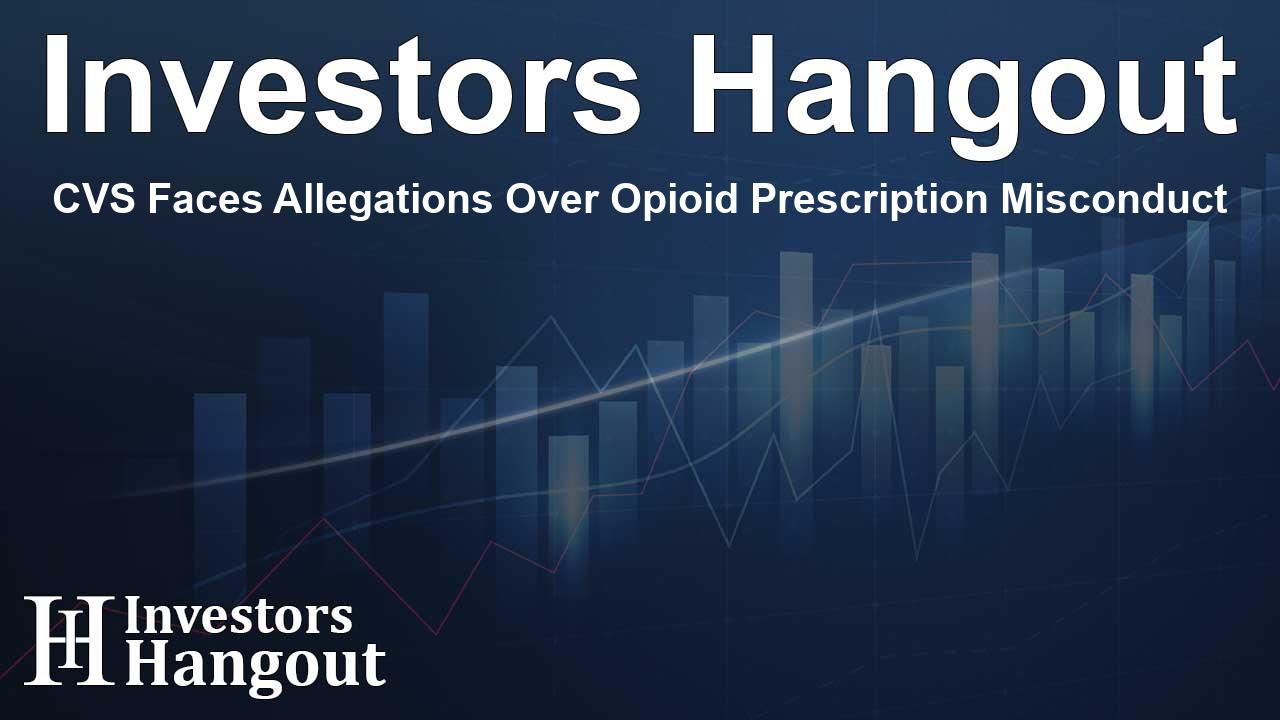CVS Faces Allegations Over Opioid Prescription Misconduct

CVS Under Fire for Alleged Illegal Opioid Practices
The U.S. Department of Justice (DOJ) has recently escalated its scrutiny of CVS by filing a lawsuit accusing the pharmacy chain of engaging in illegal activities related to opioid prescriptions. This legal action highlights serious concerns regarding the role of large pharmacy chains in the ongoing opioid crisis that has plagued communities across the nation.
Details of the Lawsuit Against CVS
The lawsuit, which has been unsealed in federal court, asserts that CVS has filled and billed federal health insurance programs for illegal prescriptions of opioids since October 2013. The DOJ claims that these actions are part of a broader pattern of negligence that has led to some patients receiving prescriptions that exceed safe limits, as well as the provision of early refills and combinations of dangerous drugs.
Allegations of Contributing to Opioid Misuse
According to allegations lodged by the DOJ, these illegal practices have not only violated the federal Controlled Substances Act but have also led to tragic outcomes, including overdose deaths shortly following the filling of illicit prescriptions. These serious claims point to a systemic issue within CVS that prioritizes performance metrics over patient safety.
CVS's Response to the Allegations
In light of the serious nature of the allegations, CVS has publicly refuted the claims made by the DOJ. The company has expressed its commitment to cooperating with federal investigations and maintaining that the accusations lack merit. CVS representatives have stated, "We have cooperated with the DOJ's investigation for more than four years, and we strongly disagree with the allegations and false narrative within this complaint." This strong rebuttal reflects CVS's aim to protect its reputation amidst growing scrutiny.
The Implications of the Lawsuit
The ongoing legal battle has the potential to shed light on the complex issues surrounding opioid prescriptions and the responsibilities of pharmacy chains in ensuring public health. As the lawsuit unfolds, the implications could extend beyond CVS, raising questions about industry-wide practices and accountability in the face of a devastating opioid epidemic.
The Broader Context of the Opioid Crisis
The opioid crisis remains a critical public health challenge, with many individuals struggling with addiction and its associated consequences. Lawsuits like the one against CVS may serve as a wake-up call for pharmacies and healthcare providers to reassess their roles in prescribing and dispensing medications, particularly opioids.
Looking Ahead: What’s Next for CVS?
As the case progresses, the outcomes will be closely monitored by industry experts and stakeholders. The potential for significant legal and financial repercussions could force CVS and other pharmacy chains to reconsider their operational practices regarding controlled substances. In an age where healthcare accountability is paramount, this lawsuit could pave the way for increased regulatory oversight and a new era of ethical prescribing practices.
Frequently Asked Questions
What prompted the DOJ to sue CVS?
The DOJ filed the lawsuit due to allegations that CVS filled and billed for illegal opioid prescriptions, contributing to the opioid crisis in the U.S.
What specific violations are cited in the lawsuit?
Allegations include filling prescriptions in hazardous quantities, providing early refills, and combining drugs dangerously, all violating federal law.
How has CVS responded to the lawsuit?
CVS has contested the allegations, stating they disagree with the DOJ's claims and have cooperated fully with investigations.
What are the potential consequences for CVS?
The lawsuit may lead to significant legal and financial repercussions, prompting CVS to reassess its practices regarding controlled substances.
How does this lawsuit reflect on the broader opioid crisis?
The case underscores the critical issues of accountability within the pharmaceutical industry, especially concerning opioid prescriptions and public health welfare.
About Investors Hangout
Investors Hangout is a leading online stock forum for financial discussion and learning, offering a wide range of free tools and resources. It draws in traders of all levels, who exchange market knowledge, investigate trading tactics, and keep an eye on industry developments in real time. Featuring financial articles, stock message boards, quotes, charts, company profiles, and live news updates. Through cooperative learning and a wealth of informational resources, it helps users from novices creating their first portfolios to experts honing their techniques. Join Investors Hangout today: https://investorshangout.com/
Disclaimer: The content of this article is solely for general informational purposes only; it does not represent legal, financial, or investment advice. Investors Hangout does not offer financial advice; the author is not a licensed financial advisor. Consult a qualified advisor before making any financial or investment decisions based on this article. The author's interpretation of publicly available data shapes the opinions presented here; as a result, they should not be taken as advice to purchase, sell, or hold any securities mentioned or any other investments. The author does not guarantee the accuracy, completeness, or timeliness of any material, providing it "as is." Information and market conditions may change; past performance is not indicative of future outcomes. If any of the material offered here is inaccurate, please contact us for corrections.